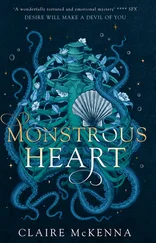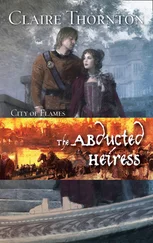“Sir?”
The three of them jumped at the sound of a man’s shout. The ship had grown so quiet.
“Lieutenant Colson reporting, sir.”
The lieutenant was under the supply officer’s command. He had keys to the locked pantry and orders to pack enough proteins and carbohydrates to last two people one month.
“I ordered takeout,” the captain said, wanting to show his own sense of humor.
He led the way back into the corridor and found Lieutenant Colson standing by a duffel bag. Colson’s mouth was tight at the corners. Food hoarding was becoming problematic. The more it continued, the less food they would have to divvy up before they anchored.
“Thank you, Lieutenant. That will be all.”
Weber stepped forward and lifted the duffel bag of food in his spare hand. Something ugly manifested in the lieutenant’s face as he stared at the supplies being gifted to a pair of civilians, but Weber turned his back and nodded to Maya and Jack, who scrambled to gather up his fishing gear with their own bags and suitcases.
Balancing a duffel in each hand, Weber led the couple down a series of narrow corridors connected by watertight doors with levers designed to stop the spread of flooding water, smoke, and fire—but not the threat of a cosmic impact, apparently.
They stepped lightly and tried to ignore noises coming from behind closed stateroom doors. Weber preferred the noises (weeping, praying, shouting, and so on) to silence. Silence was a bad indicator. There wasn’t much Healy ’s overwhelmed medical staff could do for the comatose, aside from arranging an IV drip of fluids.
Midway along Healy ’s length, they stopped for Maya to catch her breath.
“What’s this island called?” she asked. “Our way station before we reach the Aleutians?”
“Depends who you ask, like most things,” Weber replied. “On the ship, we call it by its coordinates. On a map, it’s labeled Taylor Island, if it’s labeled at all. The Iñupiat who lived there must have had a good name for it, back in the day, but I can’t remember. No one remembers the good names. Just the bad.”
He gave a small smile of apology.
“Then what’s the bad name?” Maya asked.
Her eyes were so dark that the pupils and irises merged into solid spheres. She reloaded her tiny frame with bags, grabbed the handle of a rolling suitcase, and held the captain’s tackle box close to her chest.
“I can’t pronounce it in their language, but it means swallowed whole,” Weber said. “Gulp. Like a fish.”
The three proceeded to Healy ’s stern and emerged from a hatch. Temperatures on deck hovered at the freshwater freezing point. Flurries partially melted in the air and fell as a white drizzle. A twenty-three-foot rigid hull inflatable boat was already secured at the top of the ship’s stern ramp. Weber strode quickly and climbed in first. Maya struggled to step over the hull with her short legs, but Jack was quick to help her after unloading his bags. They sat quietly behind the steering console as Weber pointed and explained each of the controls.
“You’ll follow these coordinates and reach the island by afternoon,” Weber said, plugging numbers into the console’s digital interface. “Tomorrow morning, you’ll need to refuel.”
He lifted his chin to three canisters already secured in the front of the boat.
“Then head southeast and keep an eye on the compass needle.”
He pointed to the horizon. In the wet glare, the Bering Sea was a dull-metal gray. The couple looked to one another with doubt mirrored in their eyes. Fear of rape and vicious deaths had driven this decision. Now fear of freezing in winter slowed their step. They might escape the mainland, but not fear.
Weber asked if Jack or Maya had any questions. When they both shook their heads, he pulled a key from his cargo pocket. Maya hesitated. Wait! her black eyes said. Weber knew he would have to move quickly before they lost their nerve. He flipped the boat’s ignition himself.
“Godspeed,” he blessed them, and shook each of their hands.
Maya and Jack looked equally terrified and grateful.
Hurry…
Weber removed the boat’s safety straps. After Healy ’s stern door lifted, the speedboat jolted and lowered backward to a white, frothy wake. Sounds of roaring water swelled as the retrieval line hooks released. The boat launched at speed with Jack at the wheel. The man turned for a final glance back at Healy ’s bright red flank. Captain Weber stood at a railing, his tall stature dwarfed by the colossal ship, his hand lifted against the shadows of fog.
* * *
ALL THROUGH THE day’s voyage, Maya kept looking back to the distance where they had left their mother ship. They had runny eyes and noses in the wet cold, but Maya’s sniffing could have been more than that. Jack only looked ahead to their destination. He had also formed strong bonds while in the mental trenches of possible extinction, world calamity, suicide, and news reportage that literally made him vomit. Yet when the time came, it was easier for him to detach from both Healy and his former life. Jack was always good at running away.
“I see the island!” he called above the wind.
Jack maneuvered with the boat’s pump-jets and angled south toward Gulp Island’s soot-colored beaches. Fog thinned in time to reveal a seawall of rocks capping the island’s northern shore, a measure by former inhabitants to buy time against storms. The wall ended midway along the island’s two-mile expanse. Jack steered farther south and turned inland.
“How do I stop this thing?”
Maya reached over and shut off the engine to reduce their speed. The boat coasted and rode in the waves along with bobbing pieces of trash. Jack hopped out when the hull bumped up onto the beach. He grabbed a nylon towline and worked with the surf to pull the boat’s nose clear from the water. Maya took his hand and stepped onto the beach. Both were wet and shivering. Jack’s jeans were soaked.
“We need to stay dry,” he said.
Maya nodded in a daze. Jack unpacked the neoprene Gumby suits for them to pull on. Even with the hoods down and collars unzipped, Jack and Maya looked ridiculous.
“We’re going to freeze to death looking like Muppets,” Jack joked.
And they laughed about it. Laughing was essential; to be taken on the journey to the dark side of the moon.
Jack took Maya’s hand and led her across a narrow beach to the base of a ten-foot cliff. They dug the floppy feet of their suits into eroding silt and clambered up. Jack’s camera swung on its strap and bounced against his chest. With three-fingered mitts, they made fists around the long, wild grasses poking out of melting slush and pulled at the earth by its hair.
At the top, Jack and Maya could see the full, treeless expanse of the island. Many objects were hidden under lumps of snow. Whatever they were, they weren’t worth the effort of relocation. Neither were the leaning, single-story houses made from wood planks and corrugated metal. Some tilted by only a few degrees, while others’ whole foundations were buckled and warped. If Maya and Jack were afraid of this odd-angled ghost town, they didn’t speak of it. Wind folded around them in the silence, feeling their shapes.
Finally, Maya slid back down the cliff, leaving deep skids with her heels. They returned to their boat on the trash-strewn southern shore. Jack kicked at a crushed water bottle, then toed a tampon applicator.
“Shame we can’t eat plastic,” he sighed.
Maya found the captain’s tackle box and clumsily popped the clasp with mitted fingers. Lifting its lid, she saw wooden trays filled with fishing hooks and lures in shiny candy colors.
Читать дальше












